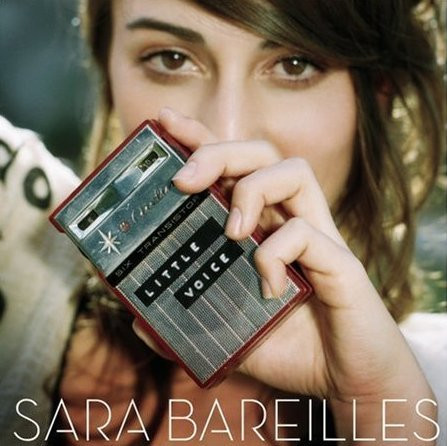Sara Bareilles’ “Love Song” is a track instantly recognizable for its piano-driven melody and powerful vocals. Released in 2007, it catapulted Bareilles into mainstream success, becoming an anthem for many. However, the song’s popular interpretation as a straightforward, albeit slightly sassy, love song directed at a former flame barely scratches the surface of its true origins. Delving deeper into the story behind “Love Song” reveals a narrative of artistic integrity, defiance against industry pressures, and a universal message about authenticity.
Often, listeners mistake “Love Song” as a sharp rebuke to a demanding ex-lover. The lyrics, laced with lines like “If you think I’m gonna write you a love song, you’re wrong,” certainly lend themselves to this interpretation. The song’s assertive tone and Bareilles’ strong delivery further solidify this image of a woman standing her ground in matters of the heart.
 Sara Bareilles performing Love Song, a defiant anthem against record label pressure for marketable love songs.
Sara Bareilles performing Love Song, a defiant anthem against record label pressure for marketable love songs.
However, the real muse behind “Love Song” wasn’t a romantic relationship gone sour, but rather, Bareilles’ own record label. As she herself explained, the song was born out of frustration with her label’s persistent requests for her to pen a commercially viable “love song.” They wanted her to craft something radio-friendly and marketable, essentially pushing her to alter her artistic direction to fit a pre-conceived mold. Bareilles recounted feeling increasingly pressured and creatively stifled by this demand. “They had encouraged me to keep writing, and I just wasn’t having any luck,” she shared, “and I was turning in the beginnings of ideas and snippets of moments of a song, and I was just getting a really sort of blasé reaction to everything.” This pressure led to insecurity, which then morphed into anger – anger at herself for caring about external validation and anger at the label for trying to dictate her creative output.
“Love Song” then became her powerful response. It wasn’t a song for the label, but a song about the label. The lyrics, when viewed through this lens, transform into a declaration of artistic independence. Lines like “they all say things you want to hear” and “I’m trying to let you hear me as I am” speak directly to the music industry’s tendency to prioritize marketability over genuine artistic expression. Bareilles is essentially telling her label, and perhaps the industry at large, that she will not compromise her authenticity for the sake of a manufactured hit. The repeated refusal to “write you a love song” becomes a metaphor for her refusal to create music that isn’t true to herself.
The beauty of “Love Song” lies in its layered meaning. While rooted in Bareilles’ specific experience with record label pressure, its message resonates far beyond the music industry. It speaks to the universal struggle of maintaining integrity in the face of external demands and expectations. We all, in various aspects of our lives, encounter pressure to conform, to change who we are to meet someone else’s idea of success or acceptability. “Love Song” becomes an empowering anthem for anyone who has ever felt pressured to compromise their true self. It reminds us of the importance of staying true to our own voice, even when faced with blank stares and demands to be different.
Ultimately, “Love Song” is a testament to the power of artistic integrity and the courage to defy expectations. It’s a reminder that genuine creative expression often blossoms not from external pressure, but from a place of authentic self-belief. Sara Bareilles’ defiant stance in “Love Song” not only gave her a career-defining hit but also gifted the world with a powerful song that continues to resonate with its message of staying true to oneself, even when the world is asking for a different tune.


